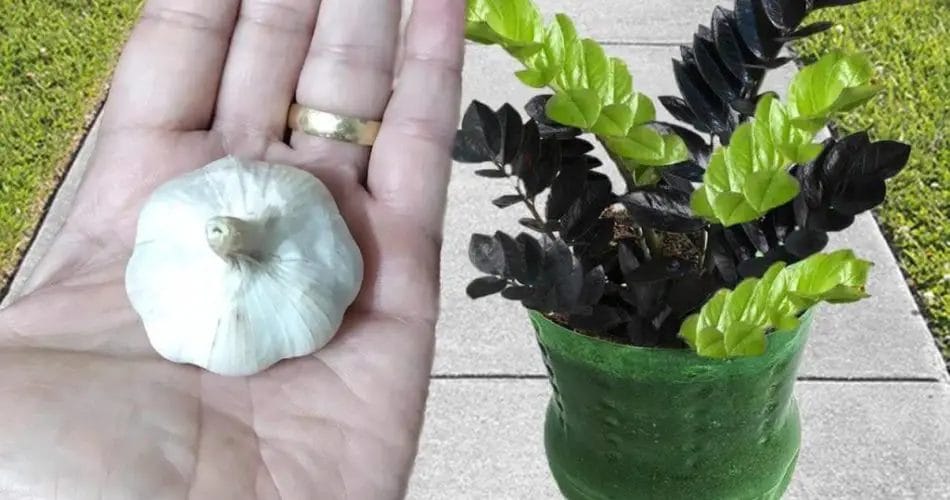Surprising What Happens if You Put Garlic on Plants: What Is the Result

Applying garlic to plants yields surprising benefits, stemming from its natural properties. As a potent organic deterrent, garlic repels pests like aphids and spider mites, establishing a protective barrier around crops. This eco-friendly solution enhances agricultural sustainability by reducing reliance on synthetic pesticides. Furthermore, garlic’s rich nutritional profile, including essential micronutrients such as manganese and selenium, bolsters plant growth and resilience against diseases. By integrating garlic into your garden, you foster an environment where plants thrive naturally and sustainably. Discover how this simple addition transforms your gardening practices, promoting a greener, healthier ecosystem.
Garlic Nutritional Power
Garlic, with its rich blend of manganese, vitamin B6, vitamin C, and selenium, stands out as a low-calorie powerhouse in the nutritional world.
Originating from Central Asia around four thousand years ago, garlic has been recognized not only for its distinctive flavor but also for its numerous health benefits.
It belongs to the Allium family, sharing lineage with onions, leeks, and shallots, which contributes to its unique properties.
The transformation of garlic into black garlic further amplifies its health benefits by enhancing polyphenol and antioxidant content, making it a sought-after ingredient for those aiming to bolster their health regime.
Its low-calorie profile combined with a dense nutrient composition establishes garlic as a fundamental component of a balanced diet, catering to an audience keen on maintaining peak health.
Garden Pest Control
In the domain of organic gardening, employing garlic as a natural pest deterrent has emerged as an effective strategy for safeguarding a variety of crops. This method taps into garlic’s inherent properties to repel unwanted insects such as aphids, spider mites, and even the carrot fly, without resorting to synthetic chemicals.
By integrating garlic plants among crops like tomatoes, carrots, and strawberries, gardeners can establish a formidable, natural defense perimeter against common garden pests. Additionally, a homemade garlic infusion serves as a potent, eco-friendly repellent, offering a practical solution to aphid infestations.
Applying this infusion at strategic times, such as dawn or dusk, maximizes its efficacy, ensuring plants remain healthy and free from harmful pests.
Plant Health Benefits

Beyond its role as a natural pest repellent, garlic offers significant health benefits to plants, enhancing their growth and resilience against diseases.
The introduction of garlic into the garden ecosystem serves not only as a protective barrier against various pests but also imbues plants with an improved ability to withstand environmental stresses.
Garlic’s rich nutritional profile, including essential micronutrients such as manganese, vitamin B6, vitamin C, and selenium, contributes to the overall health and vigor of garden plants.
This, in turn, leads to better growth rates, higher yields, and enhanced plant immunity.
Garlic Against Nematodes
The efficacy of garlic as a natural defense mechanism extends to combating nematode infestations in garden soils, showcasing its versatile pest control capabilities. Nematodes, microscopic worms harmful to plants, can severely impact garden productivity by attacking the roots of plants.
Garlic, with its potent natural compounds, acts as an effective deterrent against these pests. When applied to soil, garlic’s sulfur-containing compounds, particularly allicin, disrupt the life cycle of nematodes, reducing their population and minimizing damage to plants.
This method of pest control is not only environmentally friendly but also promotes the health and vigor of garden plants. By leveraging garlic’s natural properties, gardeners can maintain nematode-free soils, ensuring the robust growth of their crops without resorting to chemical treatments.
DIY Aphid Repellent

Creating an effective DIY aphid repellent involves harnessing the natural properties of garlic to safeguard plants without resorting to harsh chemicals. Garlic, known for its rich nutritional profile, including antioxidants and polyphenols, also possesses potent natural pest-repellent qualities. By preparing a simple garlic infusion, gardeners can create an eco-friendly solution against aphids.
This not only eliminates the need for synthetic pesticides but also promotes a healthier garden ecosystem. The application of garlic water at strategic times—preferably dawn or dusk—maximizes its effectiveness while minimizing potential harm to beneficial insects. With a lifespan of effectiveness around five days, this method offers a sustainable and accessible option for protecting plants from aphid infestations, thereby ensuring plant well-being and robustness through natural means.
Conclusion
To sum up, leveraging the ancient power of garlic not only enriches the garden with a treasure trove of micronutrients but also strengthens it as a stronghold against insidious pests.
Much like the legendary Hercules, who wielded immense strength against formidable foes, garlic emerges as a natural guardian in the garden, offering protection and enhancing the vitality of its botanical companions.
This rediscovery and application of garlic’s multifaceted role heralds a sustainable approach to agricultural practices, promising a healthier and more resilient garden ecosystem.






